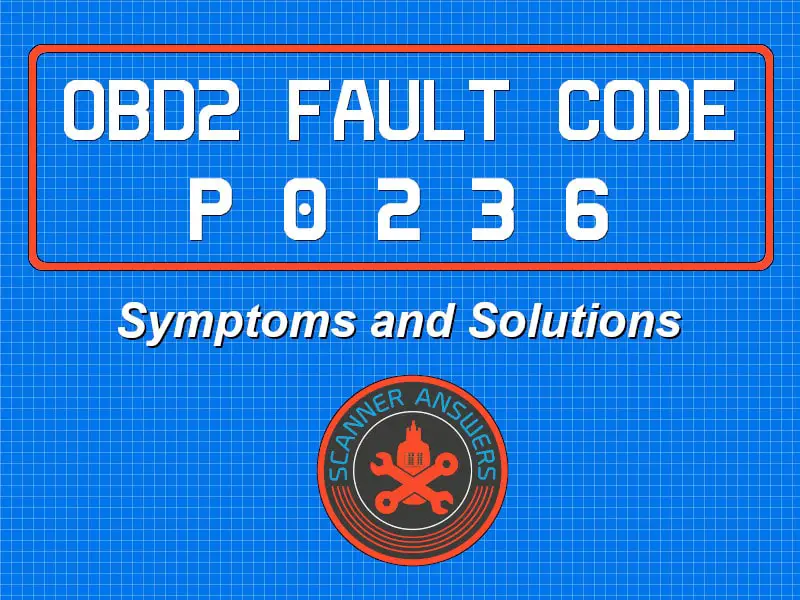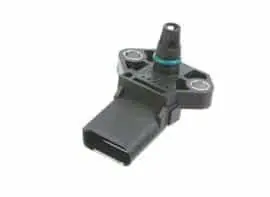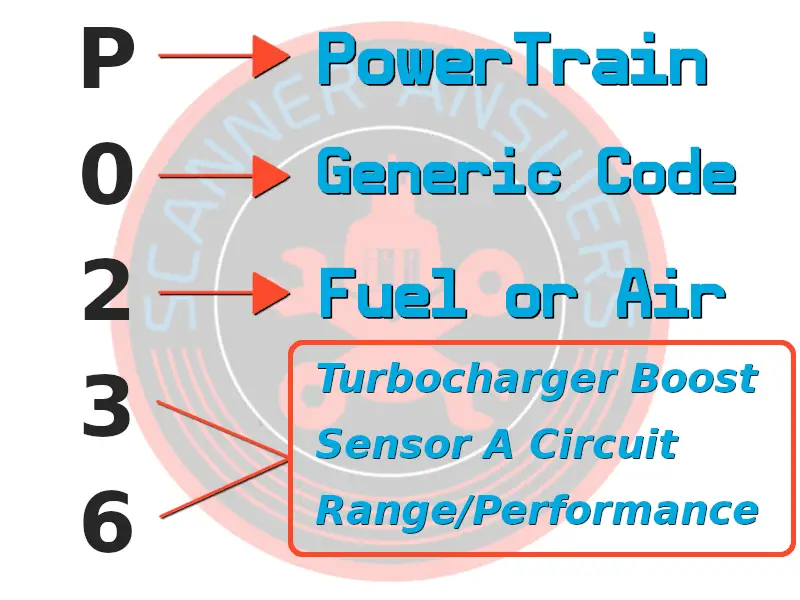
Meaning of P0236 OBD2 Trouble Code
The technical definition of P0236 code is: Turbocharger Boost Sensor A Circuit Range/Performance

While P0235 does not exactly define the source of the code, P0236 is more direct.
And while it can also be triggered by other causes like a turbo needing to be replaced, the first thing to check will have to be the turbo boost sensor. Noticeable symptoms are to be expected if your vehicle is displaying this generic fault code.
What are the causes of P0236 fault?
The primary culprit is the turbo boost sensor.
The sensor may be dirty, clogged, contaminated, or failing at some point. If this is the case, replacing the boost sensor will usually clear the trouble code and eliminate the check engine light. The fault is also the primary sign of a deteriorating boost sensor or a bad vacuum pump.
The next possible cause is broken, pinched, or aging vacuum lines. But in some rare cases, repeated occurrence of the P0236 DTC (in the absence of other engine problems) may also mean a broken or failing ECU.

What are the symptoms of P0236 OBD-II code?
Since the P0236 code is directly related to the boost sensor, the most noticeable symptoms is poor acceleration and lethargic vehicle performance. If the ECM is constantly detecting boost problems, it may disable the turbo boost entirely to protect the motor from further damage. When this happens, you can expect the vehicle to deliver lackluster performance at any given engine speed.
Learn more about testing boost pressure sensors from sTeVeXNYCPerformance.
How much does it cost to fix a P0236 DTC?
Most of the time, a boost sensor will only cost $30 or $50 to replace (shop labor will add more).
Replacing a bad turbo boost sensor usually won’t cost much, except for some European or high-performance diesel variants. The boost sensors on those vehicles will cost upwards of $200 to replace.
The same can be said if the trouble code is triggered by a vacuum leak. Replacing hoses and gaskets will set you back around $50 excluding labor costs. However, if the problem is caused by a faulty ECU, expect to spend hundreds or thousands of dollars for a new ECU (may or may not include reprogramming the new ECU).
The first line of defense is to check all related vacuum lines. (learn how to check for vacuum leaks) – Replace any pinched, cracked, or kinked vacuum line to rule out sensor problems. Any trace of leaks in the vacuum system is enough to trigger the P0236 code.
-Mike